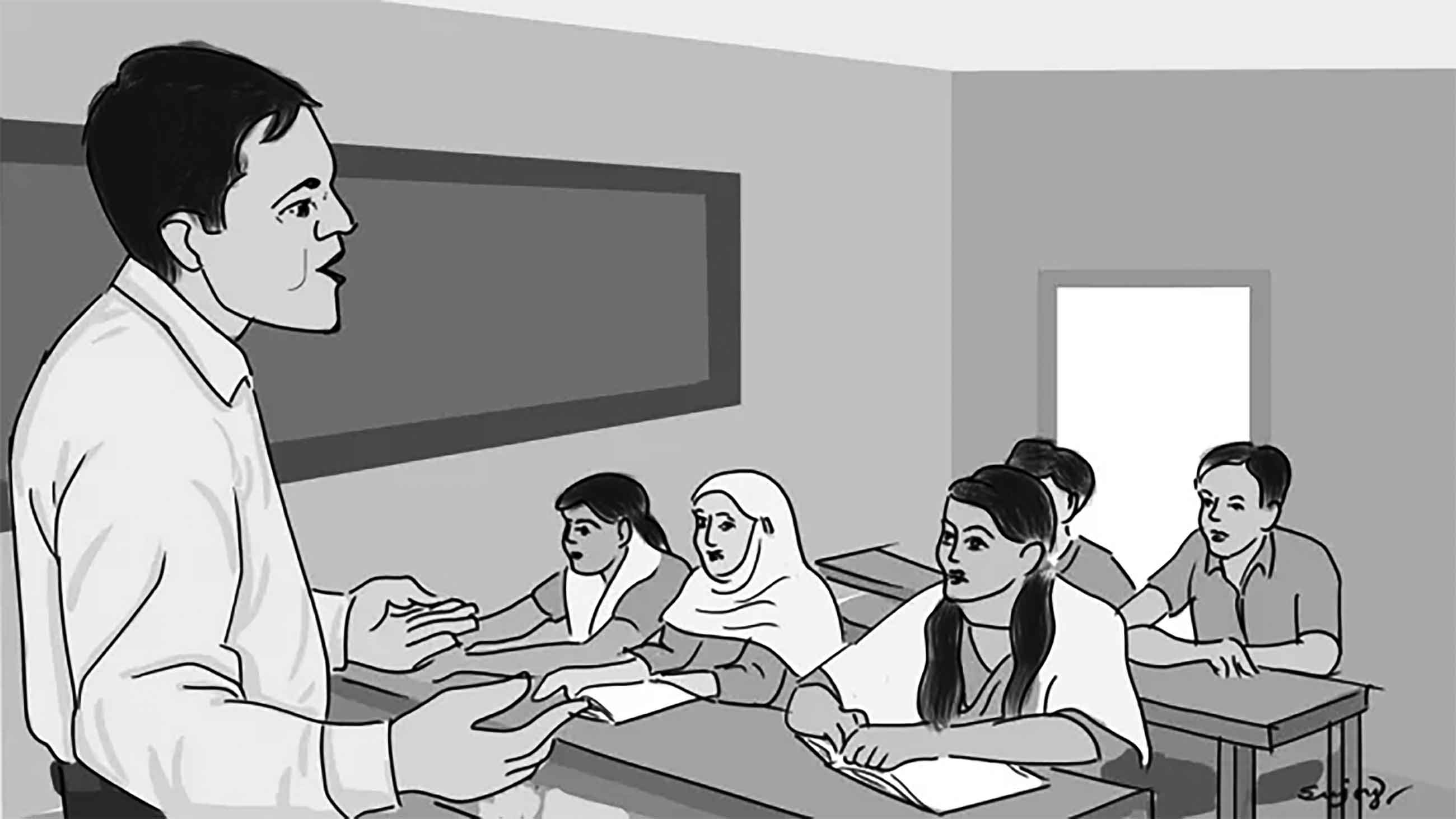
7. Read the following text and answer the questions A and B.
A most important truth, which we are apt to forget, is that a teacher can never truly teach unless he is still learning himself. A lamp can never light another lamp unless it continues to burn its own flame. The teacher who has come to the end of his subject, who has no living traffic with his knowledge, but merely repeats his lessons to his students, can only load their minds; he cannot quicken them. Truth not only must inform but inspire. If the inspiration dies out and the information only accumulates, then truth loses its infinity. The greater part of our learning in the schools has been waste because, for most of our teachers, their subjects are like dead specimens of once living things, with which they have a learned acquaintance, but no communication of life and love.
The educational institution, therefore, which I have in mind has primarily for its object the constant pursuit of truth, from which the imparting of truth naturally follows. It must not be an dead cage in which living minds are fed with food artificially prepared. It should be an open house, in which students and teachers are at one. They must live their complete life together, dominated by a common aspiration for truth and a need of sharing all the delights of culture. In former days the great master-craftsman had students in their workshops where their co-operated in shaping things to perfection. That was the place where knowledge could become living – that knowledge which not only has its substance and law, but its atmosphere subtly informed by a creative personality. For intellectual knowledge also has its aspect of creative art, in which the man who explores truth expresses something which is human in him – his enthusiasm, his courage, his sacrifice, his honesty, and his skill. In merely academical teaching we find subjects, but not the man who pursues the subjects, therefore the vital part of education remains incomplete.
A. Choose the correct answer from the alternatives.
(a) What does the word ‘merely’ in the passage refer to?
(i) fully (ii) utterly
(iii) simply (iv) entirely
Answer: (iii) simply
(b) A teacher can’t teach the students if he himself —
(i) learns
(ii) does not learn
(iii) does not teach
(iv) is fond of imparting lessons
Answer: (ii) does not learn
(c) What does the teacher have to learn?
(i) disperse (ii) expend
(iii) jumble (iv) gather
Answer: (iv) gather
(d) What does a teacher have to learn?
(i) The maxims
(ii) Education
(iii) The latest update of learning
(iv) Nothing
Answer: (iii) The latest update of learning
(e) Which of the following statement is true about truth?
(i) Truth inspires one
(ii) Truth is unnecessary
(iii) Truth is not important
(iv) Truth should be ignored
Answer: (i) Truth inspires one.
B. Answer the following questions. 10
(a) How is a teacher compared to a lamp in the first paragraph of the passage? Explain.
(b) What is the problem with the teacher who has stopped learning? Describe in two sentences.
(c) ‘Truth not only must inform but inspire.’ Explain the statement in your own words.
(d) Why do you think that the greater part of our learning in the school has been waste?
(e) The subjects of the teachers are like dead specimens of once living things. Do you agree? Give reasons for your answer.
Answer:
(a) A lamp can never light another lamp unless it continues to burn its own flame. The same is with a teacher. He can never truly teach unless he is still learning himself.
(b) The problem with the teacher who has stopped learning is that he merely repeats his lessons to his students. As a result, he can only load the minds of the students and he cannot quicken them.
(c) Truth must have two functions. It must inform and inspire. Without the inspiration, the information only accumulates and truth loses its infinity.
(d) The greater part of our learning in the schools has been waste because, for most of our teachers, their subjects are like dead specimens of once living things, with which they have a learned acquaintance, but no communication of life and love.
(e) Yes, I agree with the statement that the subjects of the teachers are like dead specimens of once living things. It is because the teachers have gone through those subjects but have no communication of life and love.n cieZ©x Ask AvMvgx msL¨vq